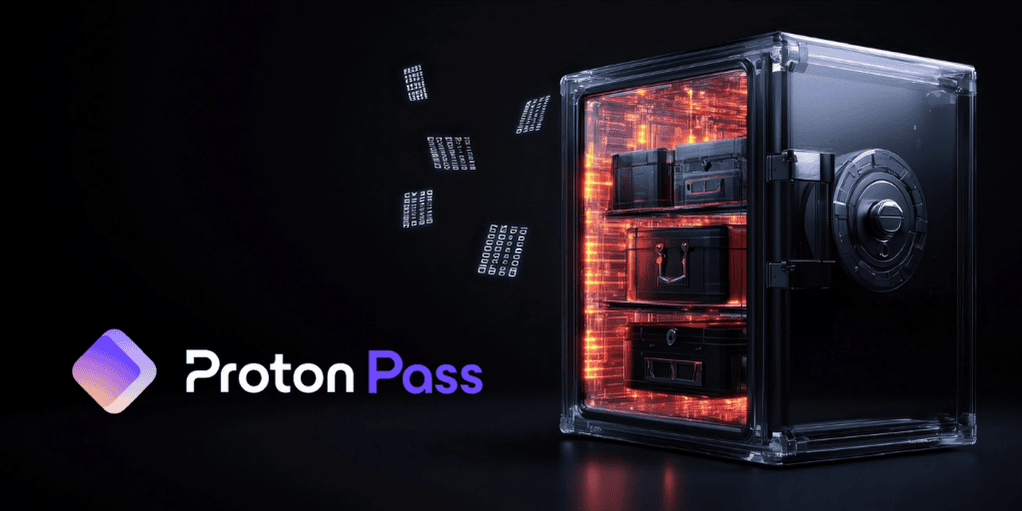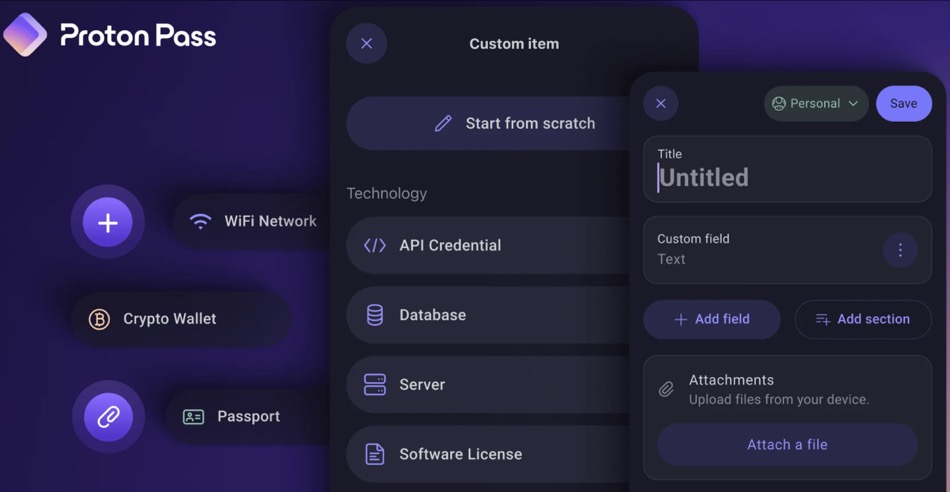
Proton has rolled out a significant update to its password manager, Proton Pass, adding support for storing a wide range of sensitive personal data beyond login credentials.
The latest update introduces customizable item templates and encrypted file attachments, effectively transforming Proton Pass into a general-purpose secure vault for personal information.
The new feature is now available to all users on paid Proton Pass plans. Users can now choose from 14 new item types, including passports, medical records, WiFi credentials, and drivers’ licenses, or create fully custom entries with user-defined fields and sections. This marks a shift in the scope of the service, which previously focused on password and credit card storage.

Proton Pass
Founded by CERN scientists and headquartered in Switzerland, Proton has built its reputation on offering privacy-focused, end-to-end encrypted tools including Proton Mail and Proton VPN. Proton Pass, launched in 2023, applies the same zero-access encryption model to password management. Unlike many competitors, Proton encrypts all user data, not just logins, by default.
With this update, Proton Pass users can:
- Create structured entries for various personal data types, such as bank account details, emergency contacts, or cryptocurrency recovery phrases.
- Build custom item templates with flexible sections and fields.
- Upload encrypted file attachments up to 10 GB per entry.
- Access version history and secure sharing functionality.
- Sync all data across devices and platforms.
The broader functionality is aimed at individuals managing sensitive data beyond digital credentials, such as scanned documents, private keys, or offline emergency plans. By enabling fully customizable records, Proton shifts toward a more general-purpose model of encrypted storage that overlaps with the functions of secure note apps and digital document managers.
The move follows a similar feature launch by rival NordPass, which introduced “Documents” earlier this month. That feature enables NordPass Premium and Family users to store up to 3 GB of scanned documents, such as passports and IDs, in encrypted form. Unlike Proton Pass, however, NordPass’s update is narrowly focused on digital copies of physical documents and lacks Proton’s support for custom data structures or large file attachments.

NordPass
Both updates reflect an industry trend toward integrating encrypted document and data storage directly into password managers, driven by users’ growing need to protect diverse personal data across devices. With many users already relying on password managers as central security tools, these services are increasingly being positioned as broader digital vaults.







Leave a Reply